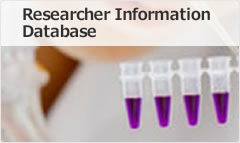Home > Subjects and Departments > Graduate School of Medicine > Doctoral Course > Medical Sciences > Organo-Pathologic Science > Thrombosis and Hemostasis
Main content starts here.
Updated : October 6, 2020
Thrombosis and Hemostasis
Teacher and Staff
Keiji Nogami
Overview
Our research activities aim to appropriately diagnose and treat congenital hemorrhagic disorders and clarify their pathology mainly by clarifying the molecular pathology of hemophilia and blood control systems, in addition to the development of anticoagulant and antithrombotic therapy methods. As part of research on hemophilia, activities, such as molecular biological analysis, the establishment of new hemostatic monitoring methods, and development of hemostatic therapy methods, are actively performed. Furthermore, regarding blood control systems, research projects related to procoagulant mechanisms, involving thrombin through the coagulation factors VIII and V, as well as the activated factor X, and coagulation inhibitory mechanisms through the activated protein C (APC) are implemented. As the majority of researchers now consider blood clot formation to simultaneously involve multiple systems, such as the intrinsic, extrinsic, APC coagulation inhibitory, and fibrinolytic systems, studies to elucidate the mechanisms of coagulation thrombus formation and its inhibition are also actively conducted, focusing on the relationship between the factor VIII involved in such formation and each system. In addition, regarding the mechanism of hemostasis as a cell-based model, more comprehensive analysis of platelets, vascular endothelium, and coagulation is performed, while developing new therapeutic strategies for thrombosis or inflammation.


















 Postal Code:634-8521 Address:840 Shijo-Cho, Kashihara, Nara, Japan
Postal Code:634-8521 Address:840 Shijo-Cho, Kashihara, Nara, Japan